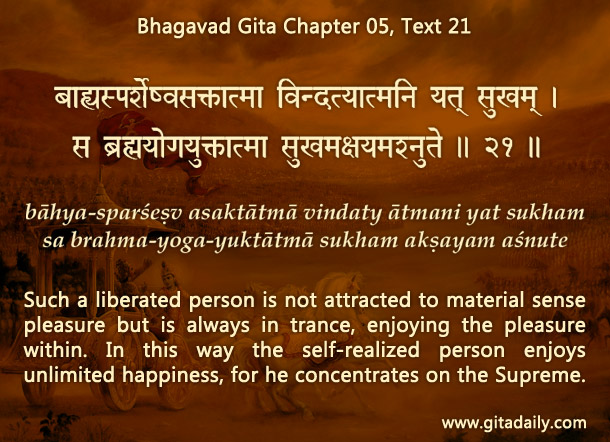Our loudest desires won’t lead us to happiness – our deepest desires will
In a conversation, suppose one person speaks the loudest. That doesn’t make them right; the person who has given the deepest thought to the issues being discussed is most likely to be right.
Similarly, inside us, a conversation is constantly going on among our various desires. This conversation usually centers on what we need to do to attain happiness. And the loudest talkers therein are sensual desires for worldly pleasures. These desires often scream and yell inside us, goading us to do their will. Though they promise us happiness, they deliver disappointment at best and distress at worst. The much-hyped pleasure ends soon and often becomes the cause of trouble, as happens frequently in addictions.
Within our mind exist desires at multiple levels. Below the sensual desires that are triggered by external stimuli are desires for things that we deeply care about. When the time comes for us to leave this world, we won’t value how much time we spend seeing the latest social media notifications or the latest TV soap operas. If we minimize our exposure to the stimuli that set off these desires, their volume will fall, and neglecting them won’t be so difficult.
Additionally, to find happiness, neglecting our loudest desires is not as important as focusing on our deepest desires. And the deepest of all desires is the desire to realize who we are essentially and to mold our life accordingly. Gita wisdom explains that we are souls, parts of the all-attractive supreme, Krishna; and linking with him devotionally is the path to peace and joy.
Pertinently, the Bhagavad-gita (05.21) assures that when we turn away from sensual stimuli and connect with our spiritual essence, we relish inexhaustible joy.
Think it over:
- How do our loudest desires deceive us?
- What are our deepest desires?
- List three of your loudest and deepest desires. How can you listen more to your deepest desires than your loudest desires?
To know more about this verse, please click on the image
Explanation of article:
https://www.youtube.com/watch?v=Ohngjdn7M-c&feature=youtu.be
Podcast:


Leave A Comment